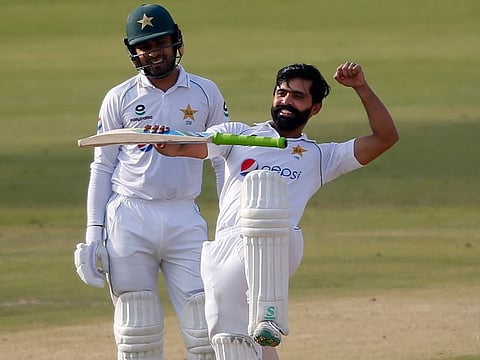South Africans make cricket history in Pakistan
It will go a long way to rehabilitate national prestige among cricket playing nations

Slowly but steadily Pakistan is getting back what it cherishes the most — cricket on its home soil. Because of the pandemic there are no audiences, no cheerleaders, no drums and music bands, no tea stalls.
But the mere fact that mainstream team like South Africa is playing test cricket on the home soil makes up for the absence of the usual dance and din that accompanies all such games.
The return is easy to describe and hard to document since it has required almost a decade of effort after a terrorist attack on the visiting Sri Lankan squad that practically banned and banished the game from the country.
As international organisers ostratcized Pakistan and all playing countries essentially used the security issue as a way to absent themselves from the list of guests, Pakistan was emptied of this great sport that enthuses millions across the length and breadth of the country.
The UAE proved to be a good friend and arranged the venue where other teams could come and compete with the Pakistani players.
Gold standard of the sport
In fact, the Pakistani brand, the Pakistan Super League, which has become the gold standard of the new format of the sport by including big bids for big foreign names by domestic franchises, was honed and housed in the friendly stadiums of Dubai and Abu Dubai. Expatriates there queued up and viewed their players battle it out with international competitors.
But that was always a temporary arrangement and the struggle to bring the game back home could not end just because the country had a warm welcome from its close neighbour. Teams did visit Pakistan. A depleted Sri Lankan squad did. Bangladesh came.
Zimbabwe too came and played here. But to get the heavy hitters of international cricket finally get over the hangover of the terror attack and restore Pakistan’s name as a perfectly normal playing venue, the visit of the South Africans was vital. It is expected that the English team may also come and play here.
These small successes form the backbone of the back-breaking effort that has had to be made in to wrest back Pakistan’s lost pride and rehabilitate its national prestige among the cricket playing nations. That makes the current tour of the South Africans particularly exceptional.
There are problems however. And most of these relate to the arrangements that have had to be made for the visitors to feel secure and not be under any pressure from the environment and the surroundings. Normally, the visiting countries send their advance teams to check security arrangements.
3-layer security arrangement
They bring in their own experts who then interface with the local authorities and send assessments back home. That pattern has been upheld even now. The 3-layer security arrangement is the same as that for the prime minister or the army chief’s public appearance. The radius of cleared area spreads to 3 kilometres.
All shop, businesses, even schools and other public activity comes to a halt when the teams move to the nets for practice or are brought back to the hotel after the day’s play. Hotels where their teams are put up also become high security red zones with soldiers deployed on all entrances of the route the players take to travel.
It is understandable why the security is so tight. The country can’t afford to have even a whiff of the past incident to pass around the visiting teams. But the consequence of this overlay of security arrangements is that the public is bothered to the point of exhaustion.
Traffic snarls around the venues of the matches become normal. Most of the stadiums where the games are played are either located in congested areas or have connections with the main arteries that are choked up and a transport mess piles up. This tests the public’s nerves that are already frayed by Corona SOPs.
Therefore, it is common to hear the people curse and complain when the visitors arrive. Normally, officials would explain the situation through press releases and even local briefings but given the fact that the disruption caused by the visitors’ security lasts for days, such information campaigns are now a rarity.
The security perimeter is simply enforced and the rest is left for the public to deal with. The first test match — the longest format of the game consuming five days of play and four days of arrival, departure and net practice — that Pakistan won was in Karachi, a city already pressed for space. The second one that is starting this week is in Rawalpindi — a city adjacent to capital Islamabad where the team is staying.
This means that the movement of the team locks down both the cities and the ruckus thus created affects a far larger number of people than it would if the visitors were housed in the same city where they were to play. But these issues regardless, the revival of the game is a great thing to have happened.
Cricket is not just a sport loved by infinite number of Pakistanis, it is way for the nation to make a strong statement about its often unacknowledged bright side.
Syed Talat Hussain is a prominent Pakistani journalist and writer. Twitter: @TalatHussain1






